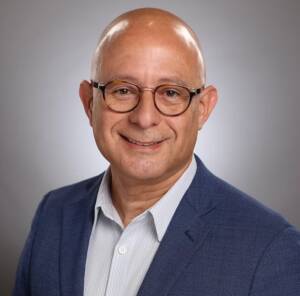Famine, displacement, and hunger have marked the human story for millennia. From ancient deserts to modern cities, they remind us that we live in a fragile, broken world. In the Reformed tradition, we understand this as the tragic outcome of the Fall—a world marred by sin since Eden. But brokenness isn’t only the legacy of Eden—it’s a direct consequence of our everyday indifference.
On July 17, it was confirmed that nearly 500 metric tons of emergency food—stockpiled by the U.S. government to feed malnourished children—had been destroyed [1]. This was not an accident. It was the foreseeable result of deliberate disruptions: the dismantling of USAID, the freezing of humanitarian operations, and the erosion of mechanisms designed to protect the vulnerable. In the name of “reform,” the safety net was cut—and when it failed, we burned the bread.
This is more than a bureaucratic failure. It is a spiritual offense.
One of Scripture’s most vivid responses to famine comes through the life of Joseph. Exiled in Egypt, Joseph interpreted Pharaoh’s dream and prepared the nation for years of scarcity. He filled the storehouses not only to save that nation, but to preserve life far beyond its borders—including his own people. He did not hoard. He did not delay. He acted with wisdom, courage, and generosity—and became a blessing in a land not his own.
And now, in contrast, we have burned what could have sustained the lives of children.
What makes this moment so grievous is that many of those responsible for this calamity claim to follow the One who said, “I am the bread of life” (John 6:35, ESV). And yet—we burned the bread. In doing so, we resemble not the sheep of His pasture, but the ones to whom He will say, “Depart from me… For I was hungry and you gave me no food, I was thirsty and you gave me no drink, I was a stranger and you did not welcome me, naked and you did not clothe me, sick and in prison and you did not visit me.” (Matthew 25:41–43, ESV). This should break our hearts.
Christians in America—particularly those of us entrusted with access, influence, or resources—must respond not with partisan defenses or theological detachment, but with lament and repentance. “Rend your hearts and not your garments” (Joel 2:13, ESV). The call is not for performative sorrow, but for true remorse. “He has told you, O man, what is good; and what does the Lord require of you but to do justice, and to love kindness, and to walk humbly with your God?” (Micah 6:8, ESV). When we neglect this call, we distort our witness.
As someone who serves on the board of a global Christian humanitarian organization, I’ve witnessed the power of compassion in action. I speak here in a personal capacity—but with conviction born from experience: when mercy is delayed, lives are lost. When compassion is politicized, all of creation suffers. We cannot normalize waste when every morsel counts. We must not allow our public witness to be diminished by worldly ambition and indifference.
We live in the already but not yet—between Christ’s finished work on the cross and the full restoration of all things. And in this in-between space, we are not called to wait quietly or shield ourselves from the world. We are called to follow Christ—to love our enemies, to feed the hungry, to bind up the brokenhearted, to take up our cross and walk the costly road of mercy and sacrifice. We are called to be salt and light—to reflect His presence in a world aching for redemption.
So let the Church humble itself. Let the Church grieve. Let the Church pray. Let the Church embody the Kingdom of Christ—where bread is not burned, but broken and shared. And perhaps, as Scripture promises, “…then I will hear from heaven and will forgive their sin and heal their land” (2 Chronicles 7:14, ESV)
ABOUT THE AUTHOR:

José Velázquez was born and raised in Puerto Rico and is the Founder and Principal of Equip4Impact, a strategy and leadership firm serving mission-driven organizations. His career spans local advocacy to national nonprofit leadership—including at the National Council of La Raza (now UnidosUS)—and senior roles in Christian higher education. He serves on the board of World Relief and is passionate about living out Christ’s good news through transformative service rooted in mercy, compassion, and hope.
[1] Matthew Lee, “US Says It Destroyed 500 Metric Tons of Expired Food Aid but It Won’t Affect Future Distribution,” AP News, July 17, 2025, https://apnews.com/article/aefb584b52cc43e43e5552986363c387.
About the top image: Image taken from www.kfyrtv.com/2025/07/17/us-set-destroy-500-tons-taxpayer-funded-emergency-food/=
